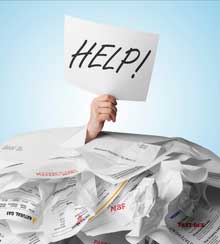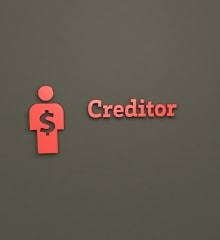Updated on January 9, 2024
What Happens With Unpaid Parking Tickets? The Complete Guide
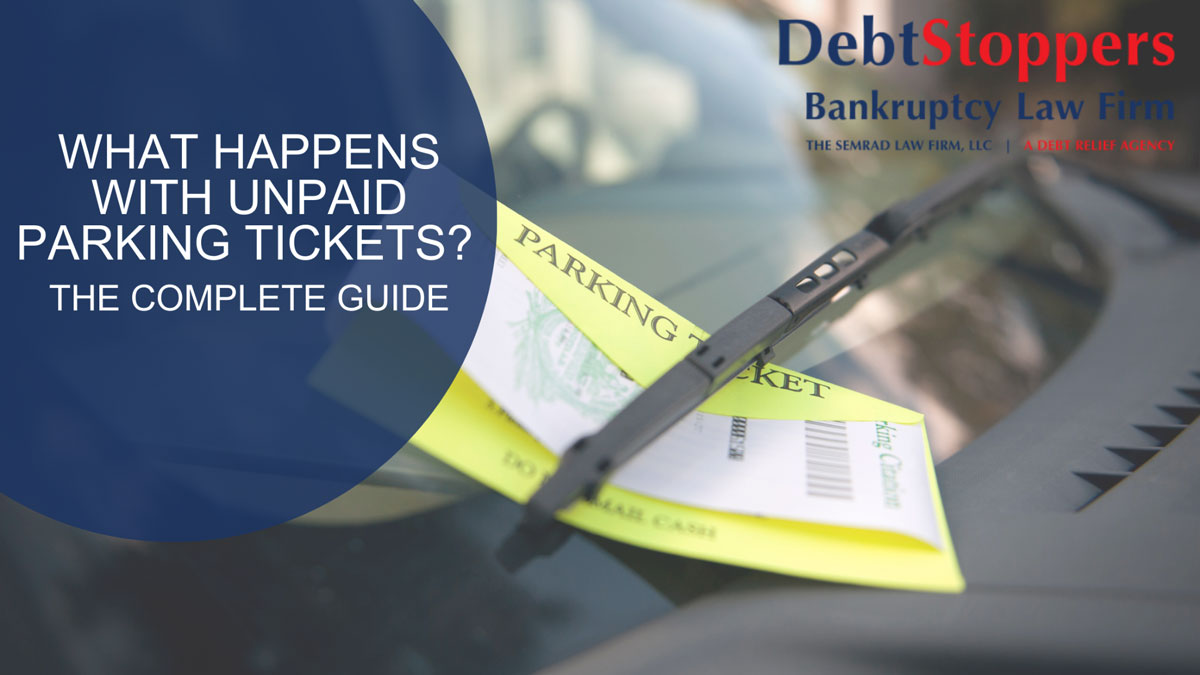
Many people think that ignoring a parking ticket here or there is no big deal, however, unpaid parking tickets can have serious consequences that can result in financial penalties, legal action, and even the impoundment of your vehicle. If you can not afford to pay the fine, you can quickly find yourself in a downward spiral of legal and financial difficulties.
In this comprehensive guide, we will explore what happens when you fail to pay your parking ticket and the potential consequences that can follow. We will also discuss how filing for bankruptcy can help you break free from your debts, including parking tickets.
How To Avoid Accumulating Unpaid Parking Tickets
The best way to avoid accumulating citations is to avoid getting cited in the first place. Always read the signs that are posted in the area to guide you, and make sure to pay attention to time limits, restrictions, and any other important information.
If you do receive a parking ticket, it is best to pay it off quickly to avoid accruing penalties and interest. Additionally, if you are able to pay the fine, you can avoid letting unpaid parking tickets accumulate.
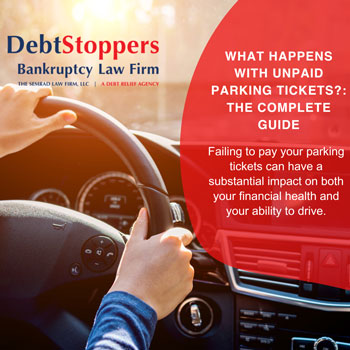
Negative Consequences If You Don’t Pay Your Parking Tickets
Can you get a warrant for unpaid parking tickets? The answer depends on where you live. In some locations, a judge can issue a bench warrant for your arrest if you don’t pay a ticket or appear at your scheduled court date.
However, even in locations that do not issue warrants, failing to pay your parking tickets can have a substantial impact on both your financial health and your ability to drive. Read the following sections of this guide to learn about the penalties you may face if you do not remit payment on time.
Fines
Parking tickets typically assess a baseline fine for the violation. However, if you don't pay on time, you can accumulate additional fines and interest. The issuing agency may also turn the debt over to a collection agency, which can result in additional costs. Be sure to familiarize yourself with the fine schedule or fee guide for any locality in which you regularly park.
Vehicle Confiscation
Some cities have a policy of booting or impounding vehicles with multiple unpaid parking tickets. To get your car back, you will typically have to pay all of your past-due citations, plus any fines, penalties, and fees, including newly-added booting or towing fees.
If you can not afford payment for all that, the city will keep your car in impound and charge you new storage fees every day. The specifics of each city’s policy should be available in a citation guide or another legal document.
Suspension of Your Driving License
In some cases, unpaid tickets can lead to the suspension of your driver's license. This can happen if you accumulate multiple unpaid citations and the issuing agency or municipality reports you to the Department of Motor Vehicle (DMV) in your state.
If your driver's license is suspended, you will be unable to legally drive until the issue is resolved. You may also face additional fines and fees, as well as the cost of reinstating your driver's license once the debt is paid.
The number of unpaid parking tickets before your license is suspended depends on the laws where you live, so be sure to review your DMV handbook to learn more. Some states, such as Illinois, do not suspend licenses, so it is important to understand the rules where you live.
Do parking tickets expire?
Parking tickets don’t expire or simply disappear over time, and assuming they do can lead to serious consequences. In most jurisdictions, including Illinois, parking tickets do not have a traditional expiration date. While there may be statutes of limitations for how long a city or municipality can attempt to collect payment through legal means, unpaid parking tickets often remain active in the system indefinitely.
Ignoring a ticket can result in late fees, penalties, or even collection actions that significantly increase the original fine amount. Some municipalities may escalate the issue by suspending your vehicle registration, towing your car, or placing a hold on renewing your license.
In some cases, unpaid parking tickets can even be reported to credit agencies, affecting your credit score if they’re sent to collections. To avoid these complications, it’s crucial to address parking tickets promptly. Many cities offer options such as payment plans or reduced fees if tickets are resolved early. Additionally, some jurisdictions hold amnesty programs periodically, allowing residents to pay off older tickets without penalties.
If you believe a parking ticket was issued in error, you may contest it, but this typically has to be done within a specific time frame. Being proactive about parking violations can save you time, money, and legal trouble in the long run.
Do parking tickets affect your license?
Parking tickets don’t directly affect your driver’s license, however, ignoring them can lead to consequences that may impact your ability to legally drive. Parking violations are considered non-moving violations, so they don’t usually result in points on your license. However, unpaid parking tickets can escalate into more serious issues if left unresolved.
In many states, including Illinois, accumulating unpaid parking tickets can lead to actions such as the suspension of your vehicle registration or even your driver’s license. Some municipalities enforce these penalties after reaching a certain threshold of unpaid tickets or if the tickets have remained unpaid for an extended period. A suspended license or registration can prevent you from driving legally and may result in additional fines or legal issues if you’re caught driving with a suspended license.
Unpaid tickets that are sent to collections could harm your credit score, which might indirectly affect your ability to renew or obtain a driver’s license if outstanding debts are tied to your driving record.
To avoid these outcomes, it’s essential to address parking tickets promptly. Paying fines, setting up payment plans, or contesting tickets within the allowed timeframe are effective ways to prevent minor infractions from turning into costly legal problems. Understanding your local laws and acting quickly can ensure your license remains in good standing.
Unpaid Fines and Their Impact on Your Credit Score
Unpaid tickets can have a negative impact on your credit score. Additionally, if your ticket debt is sent to a collection agency, the agency may report the debt to credit reporting agencies, which can hurt your credit score even more.
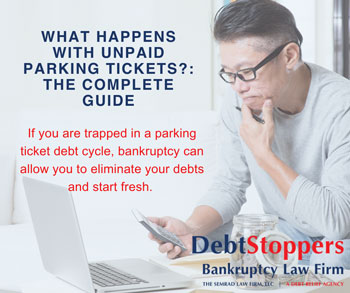
What should I do if I receive a parking ticket on a rental car?
If you receive a parking ticket for a rental car, you should notify the rental company about the ticket as soon as possible. They may have specific procedures for handling parking tickets on their rental cars. The rental company might instruct you to pay the ticket directly or provide them with information for payment. Follow their guidelines to avoid any potential penalties or late fees. If the rental company requires you to pay the ticket yourself, do so promptly to avoid additional fines or penalties.
It is important to retain copies of the ticket, any communication with the rental company, and receipts or confirmation of payment. Documentation will help in case of disputes or follow-up inquiries.
Ultimately, you are responsible for any parking tickets or moving violations while driving a rental car. Always act promptly when dealing with parking tickets on a rental car to avoid any potential issues with the rental company or additional penalties from the authorities.
How Do Laws Differ According to the State?
Unfortunately, the laws surrounding unpaid citations vary between states, so it is impossible to cover them all in this guide. Many of the rules about citations originate from city governments rather than at the state level.
Likewise, the consequences for unpaid parking tickets can differ among states and localities, so it’s essential to understand the rules in the particular city where you live and park.
How Can Filing For Bankruptcy Help?
When the amount you owe on unpaid citations or an impounded vehicle is continually growing, it can feel like you will never be able to pay what you owe. If you are trapped in a parking ticket debt cycle, bankruptcy can allow you to eliminate your debts and start fresh.
By filing for Chapter 13 bankruptcy you can wipe out your ticket debt, get your car back, and move on with your life. If you happen to live in the Chicago area, the city has instituted a new program that will allow you to eliminate older Chicago parking tickets in some situations using Chapter 7.
While reading this guide is a great place to start, why not schedule a free debt analysis with one of our skilled DebtStoppers bankruptcy attorneys? We can review your financial situation and help you determine the best course of action to eliminate your unpaid ticket debt.
Can you get arrested for parking tickets?
Unpaid parking tickets alone typically don’t lead to arrest, however, failing to address them can escalate into more serious legal issues that might result in a warrant for your arrest.
It’s important to understand that parking tickets are considered non-criminal violations, so they don’t usually carry the threat of incarceration. However, if tickets remain unpaid for an extended period, or if you ignore multiple notices to pay or contest them, the situation can change.
In some cities, unpaid parking tickets can lead to the issuance of a bench warrant if you fail to appear in court or comply with a summons related to the violations. This warrant gives law enforcement the authority to arrest you, even if the original offense was minor. Additionally, unpaid parking fines may result in the suspension of your license or vehicle registration, and driving with a suspended license can lead to criminal charges and arrest.
To avoid these consequences, it’s important to address parking tickets promptly. Pay the fines, work out a payment plan if necessary, or contest the ticket if you believe it was issued in error. Staying on top of these matters can prevent parking violations from spiraling into larger legal issues, saving you time, money, and stress in the long run. Always be proactive in resolving parking tickets to avoid unnecessary complications.
